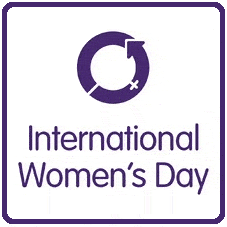What You Need to Know About Your Payment Processor


If you run a home eCommerce business, like many moms today, a payment processor is vital. If you aren’t sure, your payment processor acts as a link between your bank and the banks of your customers. It processes payments in a safe way to make sure that the money is transferred successfully. But there’s more to it than that. So, here are some points you need to know.
What It Actually Does
Your payment processor is a service that makes it easy for you to do business electronically. It acts as a middleman between the two parties and makes sure that payments are processed quickly and safely. This is usually done in stores using a mobile card reader or ePOS system. This process is quick and helps lower the risk of fraud by making sure that payments are handled quickly and correctly. You can also use a service for your eCommerce business.
Why You Need Your Payment Processor
The payment processing industry is worth almost $50 billion around the world right now. This is because they charge you a fee to let you accept payments through different channels, such as credit and debit cards. But this lets your customers choose the method of payment that is easiest for them, which makes it more likely that they will finish their purchase. They also increase security by making sure that both you and the customer are safe from cybercrime.
Customer Data Security
In addition to keeping your customers safe from crime, reputable payment processors offer great security for your customers. Any good service makes sure that transactions are safe by encrypting sensitive customer information and following industry standards. This keeps customers safe from fraud, hacking, and other threats to their security. So, this also helps you build trust with your customers and makes them more likely to buy from your business again.
Business Data Security
Customer safety is very important. But the safety of your business is just as essential. Payment processors offer extra services to businesses that help keep you safe. Most reputable services offer a wide range of features relating to customer and business security. These usually include:
- Controls to find and stop fraud and send out alerts if suspicious activity is detected.
- Making sure that the number of chargebacks goes down helps cut costs.
- Payment solutions and methods to help you manage business funds better.
- Using multi-factor authentication, encryption, and tokenization to cut down on fraud.
- Regular activity reports based on what your business needs.
Fraud and other criminal behavior are unfortunately rampant in the modern business world. But by offering these extra services, payment processors can help your business run more smoothly and reduce the chance of losing money because of dangerous criminal activity on the internet.
How they Work for eCommerce
For eCommerce, payment processors are very important. Because they are safe and offer more than one way to pay, you can sell your goods and services online no matter where you are or what time zone you are in. They also make it easy and safe to accept payments, which can help boost sales and income. This means that customers will be happier, and as a result, they will stick with the company. This is especially important for building a good reputation online.
Your Payment Processor Fees
Of course, good services don’t come for free, and payment processors charge fees. Most of the time, there is a fee for each transaction, a monthly fee, and other business-related costs. But the fees change based on the payment processor, the payment method, and the number of transactions. They can also be different based on how big your business is. So, you should think about how much each service costs because it can affect your bottom line as an SMB.
The Most Popular Services
As was already said, some services cost more than others, and each may have a few different features. So, PayPal, Stripe, and Square are three of the most popular payment processors that you might want to think about. These payment processors offer businesses a wide range of features and benefits. There are features that make it easier to keep track of your transactions. There are other payment processors, but not all of them do things the right or legal way.
Summary
Your business would not be able to run without your payment processor. Its main use is to move money from another bank to yours. But you also need to know some things. For instance, they have very good security. But they also charge fees, and not all of them are exactly reputable.






